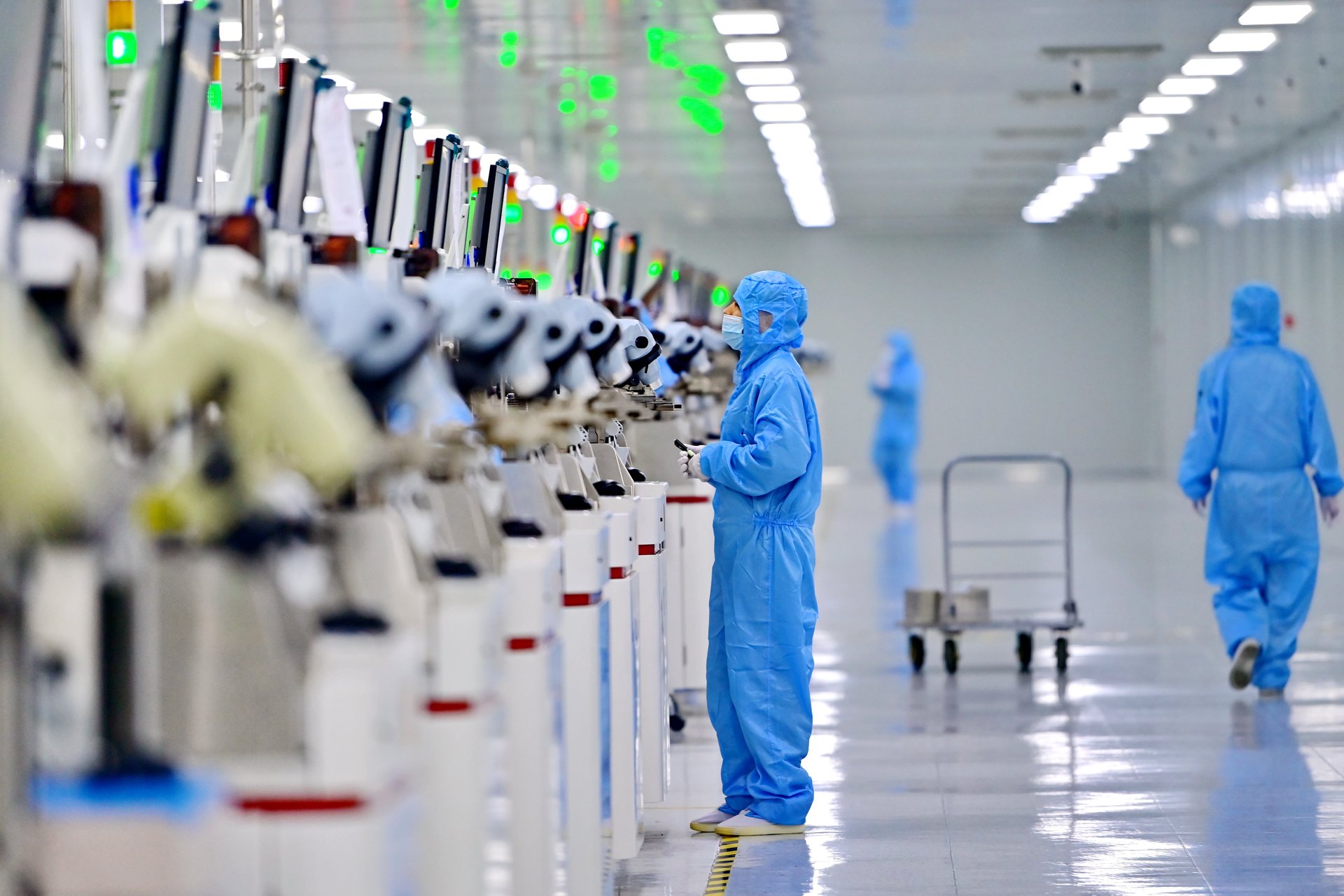China is pouring almost $50 billion into its chipmaking efforts despite U.S. sanctions
Six of China's largest state-owned banks are investing in a fund to boost the country's tech efforts

As China’s artificial intelligence ambitions absorb a blow from U.S. sanctions, the nation is doubling down on its chipmaking efforts with its latest semiconductor investment fund worth nearly $50 billion.
Suggested Reading
The fund, which will receive $47.5 billion of state money, marks the largest expenditure China has made into its semiconductor industry. It has investments from six of China’s largest state-owned banks, including ICBC and China Construction Bank, CNN reported. The country’s Made in China 2025 plan proposes upgrades to China’s manufacturing industry, including for artificial intelligence and quantum computing.
Related Content
The latest investment, known as the “Big Fund,” is the third part of the China Integrated Circuit Industry Investment Fund, and was officially established this month, according to the National Enterprise Credit Information Publicity System. The first part of the overarching fund, set up in 2014, was worth $19.2 billion, while the second portion was established in 2019 with $28.2 billion.
China’s investments are an effort to improve its semiconductor industry up to international standards by the end of the decade. The funds will mostly go toward chip manufacturing, design, equipment, and materials, according to China’s Ministry of Industry and Information Technology.
Since 2019, the U.S. has labored to curb Chinese technology with tightened export controls on advanced chipmaking tools sent to Chinese semiconductor factories. The U.S. has also asked its allies and China’s trading partners, to adopt similar export controls on semiconductor materials.
But China is pushing back, and has reportedly ordered its telecommunications companies to phase out foreign-made chips from their networks by 2027. Chinese officials also introduced new guidelines for eliminating Intel and AMD chips from government computers and servers in favor of domestically-produced alternatives.
Despite China’s efforts, the U.S. has said its controls against the country are working, pointing to the advanced chip used in Chinese tech company Huawei’s Mate 60 Pro smartphone.
“What it tells me is the export controls are working because that chip is not nearly as good, ... it’s years behind what we have in the United States,” Secretary of Commerce Gina Raimondo said in an interview on CBS’s 60 Minutes. “We have the most sophisticated semiconductors in the world. China doesn’t.”